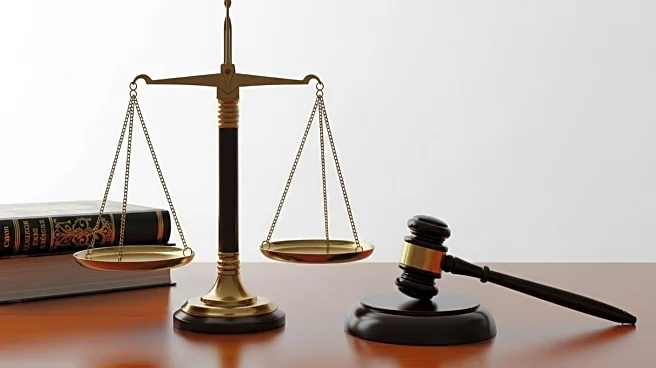What's Happening?
Supreme Court Justice Amy Coney Barrett has released a new book titled 'Listening to the Law,' which includes a discussion on the biblical story of King Solomon. Barrett uses Solomon's judgment as a metaphor to differentiate between 'doing justice' and applying the law, suggesting that the latter is the proper role of an American judge. Critics argue that Barrett misinterprets both the biblical story and the legal system. The story of Solomon, found in 1 Kings, involves a dispute between two women over a child, which Solomon resolves by proposing to divide the child, revealing the true mother through her reaction. Barrett's interpretation suggests Solomon's wisdom was innate, contrasting with American judges who must adhere strictly to constitutional and legislative rules. Critics point out that Solomon's decision was based on factual determination rather than personal judgment, highlighting a misunderstanding of the story's legal principles.
Why It's Important?
The criticism of Barrett's interpretation in her book raises concerns about her understanding of judicial roles and principles. As a Supreme Court Justice, Barrett's views on law and justice can influence significant legal decisions and public perception of the judiciary. Her textualist approach, similar to that of her mentor, Justice Antonin Scalia, emphasizes strict adherence to legal texts, yet her interpretation of Solomon's story suggests a departure from factual analysis. This could impact how legal principles are applied in future cases, affecting rulings on constitutional matters. The debate also underscores the importance of accurate legal interpretation and the potential consequences of misinterpretation by those in judicial positions.
What's Next?
The release of Barrett's book may prompt further scrutiny and discussion among legal scholars and practitioners regarding her judicial philosophy and interpretations. It could lead to debates on the role of personal beliefs in judicial decision-making and the importance of factual analysis in legal judgments. As Barrett continues her tenure on the Supreme Court, her interpretations and decisions will likely be closely monitored, influencing public trust in the judiciary and potentially affecting future legal precedents.
Beyond the Headlines
Barrett's book and the ensuing criticism highlight broader issues of how religious texts and personal beliefs intersect with legal principles in the U.S. judicial system. The discussion raises ethical questions about the influence of personal values on judicial decisions and the potential for bias. It also reflects ongoing debates about textualism and its application in modern jurisprudence, which could lead to shifts in how laws are interpreted and applied in the future.










